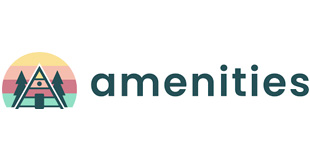Telemedicine company TytoCare launched a new offering that promises to give providers and health plans the range of products and services needed to operate successful virtual primary care programs. Gilad said the offering, named Home Smart Clinic, can give customers a clear picture of ROI because of its high utilization and patient engagement rates.
Traditional telehealth delivered by the likes of Amwell, Teladoc and MDLive often leaves much to be desired, according to TytoCare CEO Dedi Gilad.
That’s why his company launched a new offering on Wednesday that promises to give providers and health plans the range of products and services needed to operate successful virtual primary care programs. In a recent interview, Gilad said the offering, named Home Smart Clinic, will be the first remote primary care offering that can address the ROI and care gaps that traditional telehealth offerings have.
“People can hardly see their own doctor in a virtual way, so they often have to rely on a doctor in the cloud. To some populations, this might be okay, but most consumers want continuity of care. Healthcare is not like Uber,” he said.
Home Smart Clinic delivers continuous care journeys to families in their home across care modalities, including acute, preventive and chronic. The offering includes TytoCare’s handheld remote examination and diagnosis kit, its AI-powered insights platform and its suite of user engagement services.
The program was built to be compatible with various provider models, such as family primary care physicians and cloud-based doctors. Home Smart Clinic can also be tailored to different patient populations, such as those covered by private or public health plans.
Some users of Home Smart Clinic include MemorialCare, Spectrum Health and Elevance Health, according to Gilad.
He said one of the main reasons that TytoCare rolled out this new offering is because healthcare organizations are not seeing enough value when they roll out virtual care programs.
“They’re not looking just for good technology or for innovation. They want to see real savings, and in our economy, they don’t have enough of a budget to play around with trials,” Gilad said. “They want to see something that is impactful to their bottom line. And I think this is what the industry is not talking enough about.”
TytoCare stands out because it is focused on user engagement and therefore has high utilization rates, Gilad claimed. He said utilization drives effectiveness.
He also said the company’s platform shows five to eight times higher utilization rates than other virtual care providers. The program’s average utilization in the U.S. is 45%, whereas the industry average is in the single digits, according to Gilad.
These high utilization rates drive value because they lead to emergency room avoidance, urgent care avoidance and lower volumes of prescription medicine, Gilad pointed out.
TytoCare is equipping the providers and health plans that adopt Home Smart Clinic with metrics to measure the program’s success. These “D.R.I.V.E.” metrics include measures for diagnostic capabilities, retention, inclusion, visits and engagement.
By having these metrics, providers and health plans will have an easier time seeing the ROI that they get from Home Smart Clinic, Gilad said.



